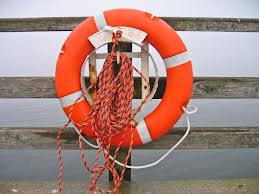search the site
Seamen may face catastrophe if DG shipping is not careful
F R Chowdhury in London
It was only about two weeks back the Director General of the Department of Shipping proudly announced that soon Bangladesh is going to earn much more foreign exchange through employment of seamen than what it earns from export of ready-made garments. We were very delighted. We thought at last this sector was going to get its recognition and that the Government was going to do the needful on its part.
However, our dream was very short lived. Now we know that Bangladesh has failed to send to IMO periodic independent audit reports of its training and examinations system. In this respect Bangladesh has already received a warning from IMO that unless the quality of training and certification is improved and all requirements of the STCW Convention are complied with, Bangladesh may lose its position in the IMO white List. In that event, the certificates issued to seafarers by Bangladesh Administration shall lose its recognition by other IMO member states. The outcome will be disastrous – no employment of our seafarers on foreign ships.
Their employment on Bangladesh ships will also be at stake because they would not be treated as duly qualified and as such our ships may not be able to visit foreign ports with our own seamen. We may have to employ foreign seamen and instead of earning foreign exchange, there will be a huge drainage. Its time the DG shipping becomes serious and does something positive to prevent this catastrophe.
Compliance of certification
It may be noted that the seafarers training and certification is the responsibility of each member countries in compliance with the provisions of the International Convention on Standards of Training, Certification and Watch-keeping, 1978, (ICSTCW) as amended. The Convention requires each member state to submit to IMO (as depositor) copies of its national rules-regulations, system-procedures including names of competent persons conducting key functions. It obviously implies that after any amendment enters into force, the national legislation, syllabus, system and procedures have to be amended accordingly and submitted to the depositor afresh. It is understood that member states will also have to satisfy that trainers and assessors for any newly introduced course are duly trained.
The Convention has adopted a Quality Standard System (QSS). It is a two-tier system. Regulation I/6 states: “Each party shall ensure that all training courses and institutes shall be supervised, assessed, approved and monitored by the Administration.” This means that any training concerning the process of certification must be approved by the Administration; and once approved it shall be strictly monitored at random to ensure its compliance to the standard. Documentary evidence of such check, assessment, approval and subsequent monitoring must be available both with the institutes as well as the Department of Shipping.
The second part of the QSS is contained in regulation I/8: “Where the Administration has any function in relation to certification of seafarers, it shall maintain a quality standard system which shall be periodically (not more than 5 years apart) audited by competent persons (conversant with the process of training and certification) who do not work for the Administration. A report of such independent audit shall be forwarded to the Secretary General of the IMO”.
Process of auditing
Such arrangements may vary depending on each country’s system. In Bangladesh if the focal point of Administration is the Director General, then it is obvious that the DG cannot arrange for audit of his own work. The DG will remain responsible for operation of day to day work and shall be answerable to the minister. In this case the minister will appoint the audit team and it will report to minister with its findings. The conventional decorum suggests that the minister should forward a copy of this audit report to the Secretary General of the IMO and that completes the cycle. While working as a Consultant/ Adviser to the IMO, I suggested the above procedures to many developing countries that are successfully listed in IMO ‘White List’.
A brief note on the audit procedure here may be useful. Though it is primarily an administration’s audit, it may have to visit training institutes for two reasons – firstly to see how the administration approved and monitored those courses; and secondly to have an idea in general of the standard of education and training.
With regard to the administration’s audit, the team would like to see the documentation procedures and criteria followed for approval of the institute and the courses and results of further visits and inspections. It shall inspect the syllabi and procedure for oral and any other test and examination conducted by the administration. It will see how the administration conducts it’s checks for other requirements such as – identity of the candidate (name, a brief note on nationality, DOB/ age), medical fitness, record of sea-service (and workshop training where applicable), training records, results of other ancillary courses and finally the result of the main course for the grade of certificate. The team would certainly like to see how all information is compiled together and the process of issuing certificate. Finally the team would like to see the recordkeeping and response to queries (bearing in mind that from 2017 the data-base should be directly accessible).
Quality assurance can be achieved through appropriate legislation, competent administration, documented procedures, recordkeeping and periodical evaluation for further improvement. IMO does not need to send auditors when convention is fully complied with. The department needs a dynamic and pro-active DG with knowledge and vision that will talk less and do more.
[email protected]



















